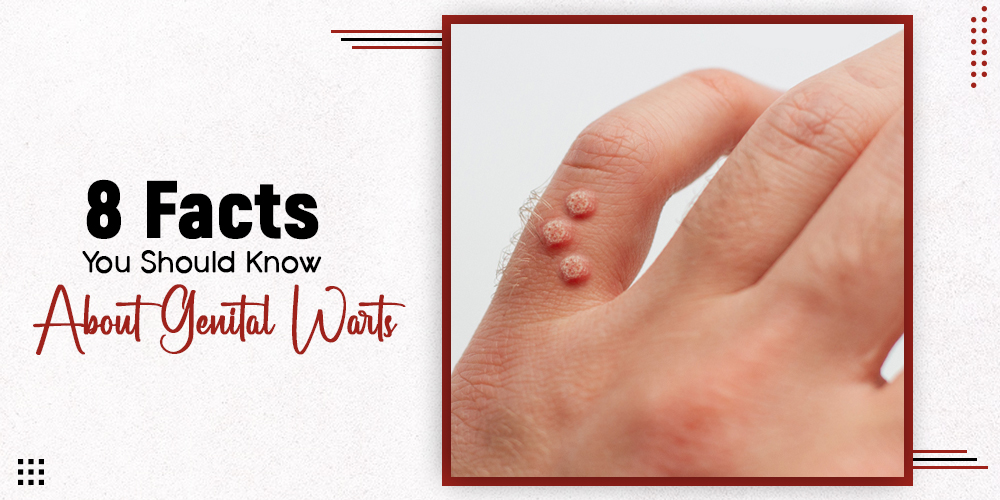1. What are genital warts?
Genital warts are flowing growths that be visible on the genitals. They sexually carry viruses caused by certain strains of the human papillomavirus (HPV). Genital warts could cause pain, not comfort, and burning.
HPV is easily the most shared of all the STIs. Males and females who are sexually active are vulnerable to the interference of HPV, including genital warts. An HPV infection is especially dangerous for women because some types of HPV can also cause cancer of the cervix and vulva.
Treatment is vital in managing this infection.
2. What causes genital warts?
A virus causes genital warts. It can be known as Human Papillomavirus ( or simply HPV). HPV will create the most popular viral sexually transferred issues ( STIs ) in the US.
It can be predicted that up to seventy percent of the world’s human population, at some point, is destined to be affected by HPV.
If you have genital warts, you have an HPV infection.
It is true, but it is imperative to see that not every HPV is made an equivalent. There are many more than a hundred and fifty various kinds of HPV ( aka “genotypes”), and everyone is identified by a number. At least thirty-five of these genotypes have a predilection for the genital tract, while some are predisposed to infect various body sites ( e .g . , HPV 6 and 11 are frequently reliable for genital warts while common warts or skin warts are often caused by HPV 1 and 2); some are responsible for minor skin lesions some are related to some cancer.
3. Is there a genital warts treatment?
Although not dangerous, genital warts can many times be difficult and pricey to eliminate. Thus they could be weakening young couples. Warts reduction could be completed using various chemical agents ( some are self-administered, and some can be applied only by a physician ) or, better, through physical defacement (operation, cryotherapy, laser, or cautery ) under local anesthesia.
4. Does HPV go away?
Most HPV infections clear naturally with little to no irritation, but several versions of HPV might cause persistent infections that put them at higher risk of still developing cancer. Recurrent genital warts might happen when the HPV virus does not clean on its own. However, the right result on an HPV check is possibly not a cause of concern.
Genital warts unattended might extend to the areas and increase in length and number. Generally, genital warts usually do not fade away entirely on their own and have to be compared by a physician as soon as they appear.
5. Are genital warts painful or itchy?
Generally, they maybe not. The majority of persons cannot experience every irritation. Certain people refer to itching, burning, tenderness, pain, or bleeding, dependent on the lots of warts and the section involved, yet this is not normal. When encountering many of these warnings, this could be a sign of the presence of one other STI (Herpes, Chlamydia, Trichomoniasis, etc .). An STI screening will be necessary to diagnose the cause and select the best therapy.
6. How to know if I own an HPV infection?
Should you have genital warts, there is an HPV virus. You may even have an HPV virus, not owning warts or every irritation.
If you happen to be a woman, you might have an analysis for HPV alone or together with a Pap smear.
According to international guidelines, any healthy woman after 21 years old should have a Pap smear every three years.
In the US, they have no FDA-approved tests clinically accessible to detect the HPV virus in oropharyngeal, anal, or men genital specimens. Although male plays a vital position in the transmission of HPV to ladies and can formulate forms of this disease caused by HPV, I have still controlled details on HPV sickness in males and on the proper diagnostic workup that should be used for detecting HPV infection.
The test out that is considered more reliable, though unauthorized nor highly suggested, needs swab sampling of the glans, penile shaft, and scrotum. Nonetheless, ever since the genital virus can affect every site, no person knows the optimal sampling site, and wrong bad test results are prevalent.
7. Does HPV go away?
Most of the HPV issues are clean certainly with little or no inconvenience, but yet many types of HPV could cause persistent problems that put at a higher risk of-of developing this disease. Frequent genital warts might happen whenever the HPV disorder does not clear on its own. Even so, the right result on an HPV test is not necessarily a cause of concern.
Genital warts left untreated might spread to some other areas and increase in size and number. In most cases, genital warts do not ever go away on their own and can be checked by a physician as soon as they show up.
8. So is HPV dangerous for my health?
Genital warts are 90% of the time a result of HPV variations which do not in general cause this disease. Some other HPV strains are considered “carcinogenic” viruses, i.e., they can cause this disease. For instance, the Papillomavirus virus is recognized as the primary cause of cervical cancers in women, but it has also been associated with penile, vaginal, vulvar, anal, or oropharyngeal cancer. It has been expected that in 2009 alone, 32 000 cases of cancer in the USA were the result of the HPV virus. Luckily the alteration to this disease will take years. Thus we have lots of chances to detect and treat early HPV-related forms of cancer. Typical visits with a gynecologist for women, consultations with a urologist for males, and stays with a proctologist for the two are expected in detecting early signs of HPV-related cancer.
Posts You May Like to Read:
Antiviral Herbs: 3 Powerful Immune-Boosting Plants for Greater Health and Wellness
